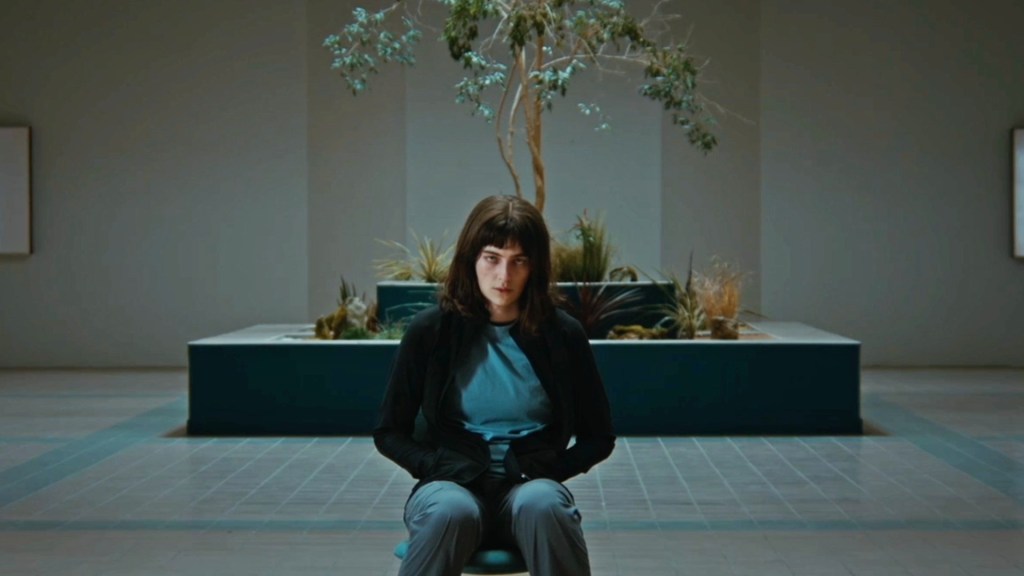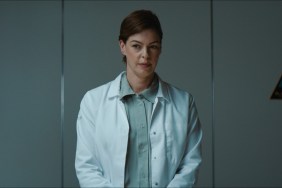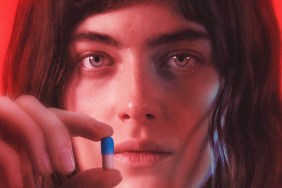Ian Hunt Duffy’s directorial debut, Double Blind, is an intense sci-fi horror thriller that makes the most of its minimal resources.
Its tight concept and limited location ensure it has a focus on what matters, which is ratcheting up the dread and tension on its cast of unwitting prisoners.
A group of voluntary test subjects are in the Blackwood Institute’s restricted clinical trial building to try a new drug. This group is made up of those who had to be desperate enough to sign up in the first place. The promise of a sizeable payoff seems appealing for old hands and newcomers alike, but early on, they discover it will be an incredibly isolated test where they will be confined to the test center for the duration.
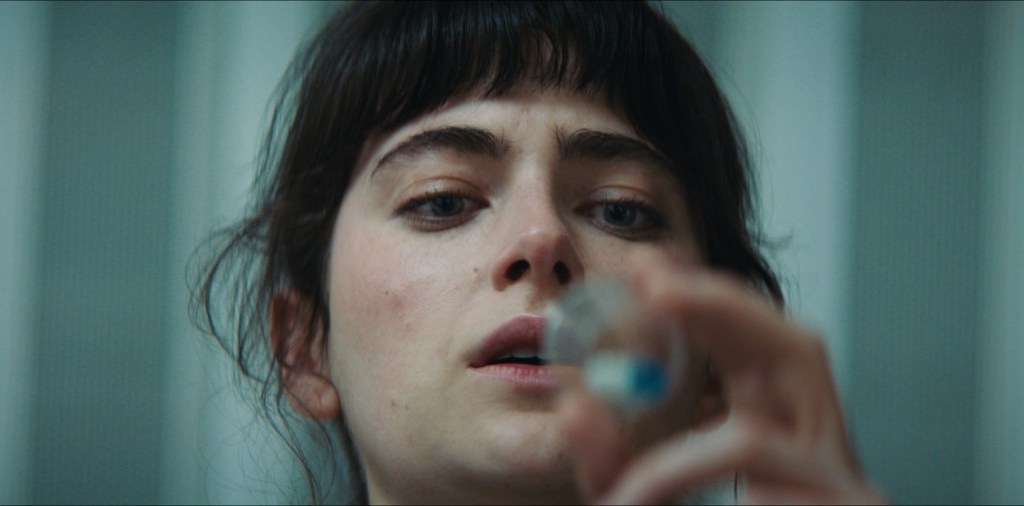
When the drug develops unforeseen side-effects that prevent the group from sleeping, they are pushed onto more and more of it to see what the effects will be long-term. There’s a promise of a massive payday for all, but before long, they discover the horrifying fallout of the drug; once you eventually do fall asleep, you die and die horribly. Before they can register the situation, it changes further when the facility is put on a 24-hour lockdown.
The structure and atmosphere of Double Blind are reminiscent of early John Carpenter. A ragtag group of flawed people having to work together in a doom-laden environment. The score, while not a direct homage to the Horror Master, is evocative of his work. But what’s more interesting to me is that the concept puts a clinical spin on the hook for A Nightmare on Elm Street. The group has limited resources as they are cut off from the outside world and must do everything in their power to stay awake until they can receive help if help is ever coming, of course).
Claire (Millie Brady) is a focal point for this unique situation. She naturally brings her own personal demons into it that will be leveraged to get out of this. She’s imperfect, doesn’t have all the answers, and begins the film as a cold outsider, but Brady’s excellent performance ensures these are compelling qualities as Claire adapts on the fly but remains realistically out of her depth throughout, just as everyone else is. It mainly comes down to how she acknowledges her shortcomings and pushes on to ensure they collectively escape.
Our only real interaction with the institute itself comes in the form of Dr. Burke (played by Pollyanna McIntosh). Burke is effectively a middleman in the facility. She knows more than the test subjects, but less than the overseers who push her to change the parameters of the test. It builds conflict and fear in the character, which McIntosh conveys with subtle ease.
The bleak, repetitive environment is a major player in keeping the viewer on their toes in regards to who could die next. The lack of sleep and the effects of the drug combine to cause hallucinations as the test subjects begin to fatigue. These hallucinations are as clinical as the trial as they tend not to veer too far from reality, but have just the right dose of the absurd in the crucial moment to ensure it’s clear something has gone wrong for that particular victim.
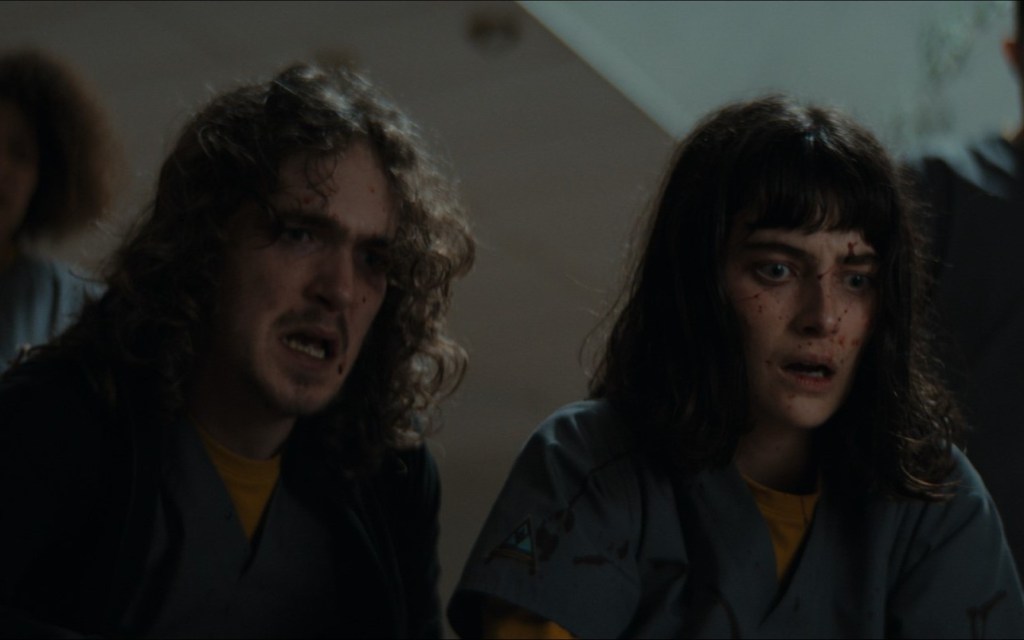
And the outcome of failing to stay awake is simple, but effectively bloody. By grounding the outcome in some understandably loose scientific logic, the deaths feel uncomfortably ordinary by horror standards because you could feasibly see such a thing happening to you (the outcome rather than the whole ”trapped in a sinister facility under the influence of a volatile experimental drug” thing.
Locked in a largely sterile facility with little in the way of provisions makes the situation especially intriguing. They have smelling salts, but beyond that, there’s little in the way of entertainment, and any stimulants are ruled out for potentially making their condition worse.
These ”rules” help Double Blind’s central concept feel unique, and it’s impressive how the subjects are made to think outside the box to stay awake with minimal tools to achieve it.
Duffy’s film is a confident one, especially for a feature-length debut. It fittingly utilizes its limited toolset to great effect, but it does stumble in reaching its conclusion. Personally, I’d have ended proceedings a little sooner and a little bleaker, but I can understand why it heads in the direction it does. A bit of hopeful ambiguity is no less effective than stark finality.
Score: 8/10
As ComingSoon’s review policy explains, a score of 8 equates to ”Great”. While there are a few minor issues, this score means that the art succeeds at its goal and leaves a memorable impact.
